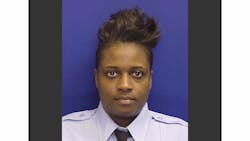Philly Probe: 18 Minutes for Second Ladder to Arrive at LODD Blaze
The Philadelphia Fire Department will no longer use brownouts or forced staff rotations - two controversial policies implemented by former Mayor Nutter - Mayor Kenney announced Thursday.
Kenney, whose father was a battalion chief, announced the suspension in conjunction with a report issued by City Controller Alan Butkovitz, which found both practices, "jeopardized public safety" and cost the city $20 million in overtime.
In 2010, on the heels of the economic recession, Nutter instituted the rolling brownout policy, closing several engine companies during day and night shifts and reassigning firefighters to save money. The practice was suspended on Dec. 31, 2015. Kenney, who long criticized both policies, has said he will not bring them back.
He did not know what financial impact ending brownouts would have on the department.
"The saving of dollars whether a recession or not a recession should not be done at the expense of public safety or at the expense of the potential loss of firefighters or injury to firefighters," Kenney said. "It's hard to be judged on the actions and decision of past administrations when you're still new, so we will go forward and not make those mistakes again."
The rotation policy followed in 2013 and involved shuffling high ranking firefighters through different stations to expand their experience.
The rotations disrupted working relationships fostered in the firehouses, fire union leaders said, and in some cases left firefighters to navigate areas they didn't know well.
EMT paramedics will continue to rotate between firehouses, something union officials said they hope to work with the administration to end.
Butkovitz' report found that since 2010 the Fire Department's response rates dropped from 80 percent to 74 percent, a lag he attributed in part to brownouts since they require engines to travel longer distance to cover for the closed stations.
National standards require first engines to arrive within five minutes and 20 seconds 90 percent of the time.
Acting Fire Commissioner Derrick Sawyer applauded the end to the brownouts Thursday, saying they would free up the department to focus on training.
Sawyer said the response rate isn't as bad as it seems in the report. Butkovitz' calculatation includes everything from a structural fires to fire alarm reports to stuck elevators, he said. Sawyer said the city did meet national response standards for the more narrow - and important - category of structural fires.
"Do we go to an alarm system as fast as we go to a fire? No, we do not and it's a safety issue, you don't want to put people at risk, especially with no evidence of smoke or fire," Sawyer said. "(The report) used all the calls."
Sawyer conceded the department needs to improve its "turnout time," the amount of time it takes to suit up and get to the truck, which was also below national standards.
Butkovitz report found that four fire fatalities from 2010 to 2014 occurred in locations where the nearest firehouse was browned out. In each of those cases, no information was available on how long it took the first engine to arrive on scene.
Butkovitz also cited the 2014 death of firefighter Joyce Craig in his report. Due to rotations, a newer crew was working on the second ladder dispatched to the scene which took 18 minutes to arrive that day, the report says.
"The forced rotations put a group together in a ladder company that may have not been familiar with the area for response time," said Andrew Thomas, president of Local 22, the firefighter's union. "I do believe traffic played a part in the response but there's no acceptable reason it should take 18 minutes."
The administration has not released its investigation into Craig's death. Sawyer said he is waiting for the report from the National Institute for Occupational Safety and Health, which investigates all firefighter fatalities.
Butkovitz' report also noted the city's 63 fire stations have not kept pace with city development.
Kenney - who is conducting a national search for the city's next fire commissioner - said he wants more information on what areas might need better coverage.
A full copy of the audit is available on the City Controller's website at http://www.philadelphiacontroller.org.
[email protected] 215-854-5506 @juliaterruso
———
©2016 The Philadelphia Inquirer
Visit The Philadelphia Inquirer at www.philly.com
Distributed by Tribune Content Agency, LLC.
